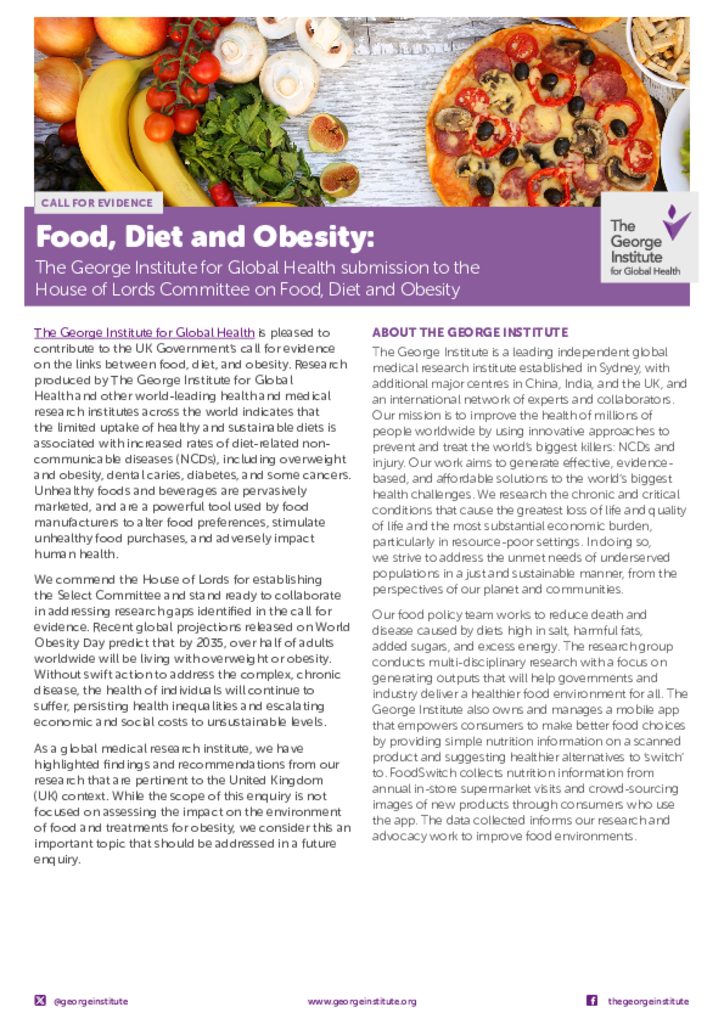
Submission to the House of Lords Committee on Food, Diet and Obesity Call for Evidence on Food, Diet and Obesity
The George Institute for Global Health is pleased to contribute to the UK Government’s call for evidence on the links between food, diet, and obesity.
Unhealthy foods and beverages are pervasively marketed, and are a powerful tool used by food manufacturers to alter food preferences, stimulate unhealthy food purchases, and adversely impact human health.
Research produced by The George Institute for Global Health and other world-leading health and medical research institutes across the world indicates that the limited uptake of healthy and sustainable diets is associated with increased rates of diet-related non-communicable diseases (NCDs), including overweight and obesity, dental caries, diabetes, and some cancers. As a global medical research institute, we have highlighted findings and recommendations from our research that are pertinent to the United Kingdom (UK) context. While the scope of this enquiry is not focused on assessing the impact on the environment of food and treatments for obesity, we consider this an important topic that should be addressed in a future enquiry.
In this submission, we discuss the role of ultra-processed foods (UPFs) and sugar-sweetened beverages in causing obesity. Several changes are recommended to improve public health, including mandatory reformulation of food products to reduce unhealthy ingredients, clearer labelling to warn consumers about unhealthy choices & advertising of unhealthy foods and drinks.
In summary, based on our evidence, we advise that the House of Lords Committee implement the following actions:
- Enforce comprehensive and mandatory policy measures, encompassing nutrition labelling policies, reformulation policies to encourage healthier food and beverage options, regulation on unhealthy food and beverage marketing and on advertising and taxes for less healthy products. Increase the affordability of healthier food alternatives (e.g. use of subsidies).
- Develop guidance around the role of UPF and HFSS products in a healthy diet and for tackling obesity, including a regulatory definition for UPF that is objective, verifiable and precise, using information readily found on the pack, such as the ingredients list and nutrition information panel.
- Mandate the inclusion of coloured front-of-pack labels on food and beverages to assist consumers in evaluating food quality and making informed decisions and provide detailed guidance on the design elements of health warnings and other considerations for implementing labelling policies.
- Engage meaningfully with communities and relevant stakeholders in shaping nutrition outcomes, granting them formal roles throughout the policy cycle, thereby facilitating the co-design of nutrition policies.
- Design policies relevant to diet and obesity that are gender-responsive and transformative, with their implementation monitored for any sex or gender differences, including by funding research that is disaggregated by sex and gender, at time of collection, analysis, and dissemination.
- Develop and implement policies that are protected from industry influence and accompanied by a transparent process for monitoring, reviewing, and enforcement. This entails establishing clear and strict conflict of interest policies and mandating the disclosure of interactions between government and industry, including financial contributions.
For further information, please read our full submission





